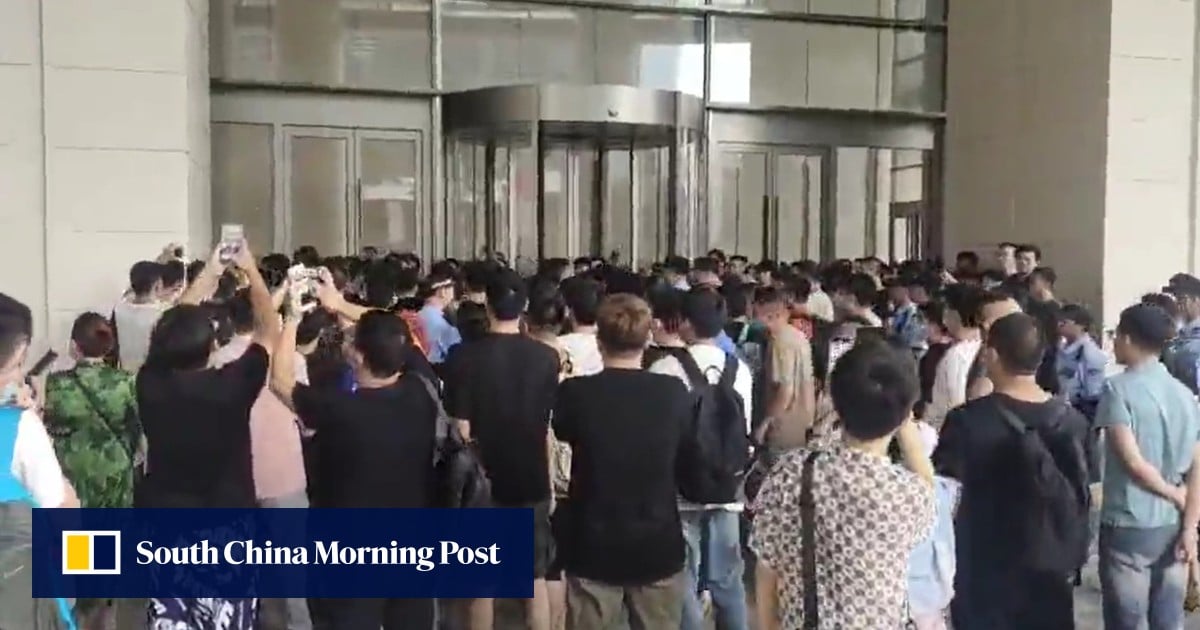Hundreds of Chinese suppliers, angered by what they claim are unfair platform policies, staged a protest at the Guangzhou office of PDD Holdings, the company behind the popular overseas shopping app Temu.
The protest, which took place on Monday afternoon, involved dozens of suppliers who stormed the PDD office, according to social media videos and confirmed reports from merchants. Yi Magazine reported that approximately 80 merchants entered the PDD office, but were subsequently escorted out by police.
This isn't the first time Temu has faced backlash from its suppliers. In a statement issued on Tuesday, the company acknowledged that "a group of merchants gathered at the office of a Temu logistics affiliate in Guangzhou," citing their dissatisfaction with how Temu handles after-sales issues related to product quality and compliance. The statement, however, did not specifically address the July 29 protest.
According to the statement, the merchants are disputing a sum of several million yuan in refunds, which they argue is unfair. Temu, however, maintains that the merchants have refused to resolve the disputes through the standard arbitration and legal channels outlined in their seller agreements, assuring that the situation is stable and that the company is actively working to find a solution with the merchants.
Despite these claims, PDD's stock price dropped by 2.5 percent in New York overnight.
The protest adds to the growing uncertainty surrounding Temu, which is already facing challenges from strict import duties imposed by the US and EU. Temu competes against other popular e-commerce platforms like Shein and TikTok Shop, as well as Alibaba Group Holdingâs AliExpress, in selling Chinese-made products directly to international buyers. Alibaba owns the South China Morning Post.
Temu is rapidly expanding its reach to consumers in the US and other overseas markets, offering low-priced products such as dresses for US$6.92 and sandals for US$3.99. However, numerous Chinese suppliers are unhappy with the platform's stringent terms, particularly the hefty fines levied if customers complain or request refunds.
Temu's policy of allowing customers to keep refunded products due to the high cost of cross-border logistics has resulted in a significant loss of revenue for many suppliers. Several merchants have reported not receiving reimbursement for refunded items.
One Guangzhou-based supplier, who did not participate in the protest but was informed by his peers, described himself as a "victim" of Temu's policies. He shared that while he generated 40 million yuan (US$5.5 million) in revenue through the platform last year, Temu deducted a "fine" of 3 million yuan due to customer refunds and complaints, effectively wiping out almost all his profits.
This merchant, along with others who declined to be identified, highlighted the harsh nature of Temu's after-sales policies. They claim that Temu refunds customers and allows them to keep the product while imposing fines on the seller at more than double the price of the after-sales issue. This means that as sales increase, so do the fines, leading to a feeling of helplessness among suppliers who see little chance of recouping their losses.
A second unnamed merchant said that PDD has yet to address the suppliers' complaints. Despite generating 800,000 yuan in sales on Temu, the platform has withheld around 300,000 yuan in fines and refunds.
A Shenzhen-based mobile phone seller described a similar situation, noting losses of approximately US$80,000 due to fines and unpaid funds for sold products. He also mentioned a loss of around 200 units of smartphones due to Temu's no-return refund policy, for which he is still waiting to be compensated. This merchant highlighted that Temu can impose fines up to five times the product's sales value.
With suppliers growing increasingly frustrated with Temu's policies, the future of the platform remains uncertain. It remains to be seen how PDD will address the concerns of its suppliers and whether it can overcome the challenges it faces to ensure a sustainable future for its business.
Article
Business

Temu Faces Supplier Uprising Over "Unreasonable" Policies

